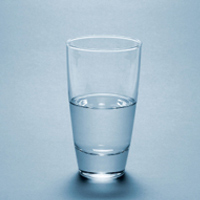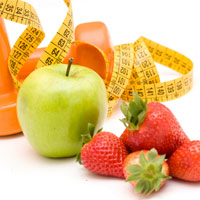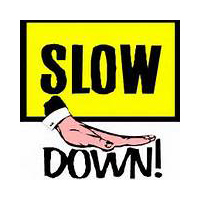
I am available! (But only for those who really need help!)
In view of the extended lockdown to limit the COVID-19 epidemic, I wish to inform all patients that I am available for telephonic consultation & in exceptional situations for face-to-face meetings.
Consultation schedules for clinic patients & those at Deenanath Mangeshkar Hospital are different, therefore please follow instructions below to have a seamless consultation experience -
All telephonic consultations will be strictly by appointment
Appointments for Clinic patients will be from 9.30-10.30am
Consultations for DMH patients will be from 11.30am-1.30pm
Policy for Clinic appointments :
- Please send your reports on WhatsApp on 9822053654 or 9921533381 / email to amolbapaye@gmail.com on previous day and you will receive a response stating the time that you should call in.
- Please call at the stipulated time on 9822053654 and I shall be happy to consult and discuss your problem.
- After this telephonic consultation, if it is necessary to see you in person, we shall schedule a time and location according to the requirement.
- Your prescription will be sent to you WhatsApp / email after the consultation is completed.
- After consultation, please make payment by GooglePay to +919822053654.
Policy for DMH appointments :
- Please call on 020-49153202 / 49153207 & provide your name, MRD no (if old patient), mobile no & email address (if available).
- You will be given a time slot to call in for telephonic consultation & will be asked to make payment via the DMH payment portal. Please call in at the allotted time to consult regarding your problem.
- After discussion, if I need to see you in person, we can schedule a time according to the requirement
- Your prescription will be sent to you by WhatsApp / email after the consultation is completed
Before scheduling your appointment, please check :
- Is your problem so urgent that it cannot wait for 3 weeks?
- Is your problem potentially dangerous?
- Is your problem likely to increase / aggravate over the next 3 weeks?
- Have you developed any new / additional symptoms since your last visit?
If the answers to any of the above is yes, please schedule your appointment as soon as possible.
Is your visit a routine follow up?
- Are you satisfied / cured of your problem with your previous treatment?
- Have you been scheduled for a non-emergency procedure?
- Is your current problem minor, non dangerous, not likely to increase in 3 weeks or are your symptoms are manageable?
- If answers to the above are yes, please stay at home & do not venture out! Your safety is important to us!
This policy will continue till such a time that the restrictions are lifted & situation becomes safer.
Be safe! Be healthy! Be positive! This too shall pass!
Dr. Amol Bapaye


 Latest News
Latest News 

 There’s almost nothing better for your digestive system and your overall health than water. Just like not eating enough fiber, drinking too little water slows down your digestive system significantly because a harder stool is more difficult to pass. Drink plenty of water and other fluids like green tea, fresh juices especially after you exercise. Stay hydrated. You'll know when you're getting enough water when your pee is clear all day long.
There’s almost nothing better for your digestive system and your overall health than water. Just like not eating enough fiber, drinking too little water slows down your digestive system significantly because a harder stool is more difficult to pass. Drink plenty of water and other fluids like green tea, fresh juices especially after you exercise. Stay hydrated. You'll know when you're getting enough water when your pee is clear all day long. Studies show that even small weight gains are linked to GERD (gastroesophageal reflux disease or acid reflux ), a condition in which the valve between the stomach and esophagus doesn’t close completely, allowing stomach acid back into the esophagus. Losing even a few pounds eases some of the pressure in your abdominal area and can help reduce heartburn and other discomfort. Hence always maintain a healthy weight.
Studies show that even small weight gains are linked to GERD (gastroesophageal reflux disease or acid reflux ), a condition in which the valve between the stomach and esophagus doesn’t close completely, allowing stomach acid back into the esophagus. Losing even a few pounds eases some of the pressure in your abdominal area and can help reduce heartburn and other discomfort. Hence always maintain a healthy weight. Nobody likes to be rushed, and your digestive system is no exception. It takes a little time before your body sends the signal to your brain that you’ve eaten enough. Therefore do not eat on the run. Slow down, sit and eat. Chew each bite at least 20 times. That gives your stomach plenty of time to prepare to properly digest the nutrients you are giving it, and allows your body and brain to tell you when you’ve had enough.
Nobody likes to be rushed, and your digestive system is no exception. It takes a little time before your body sends the signal to your brain that you’ve eaten enough. Therefore do not eat on the run. Slow down, sit and eat. Chew each bite at least 20 times. That gives your stomach plenty of time to prepare to properly digest the nutrients you are giving it, and allows your body and brain to tell you when you’ve had enough. Intestinal bacteria produce gas when foods haven’t yet travelled through the small intestine. If gas particles aren’t released right away, the stomach expands like a balloon. Although overeating is the most known cause for bloating, some people battle the bloat daily – even if they haven’t eaten a large meal. If this sounds like you, the triggers may not be how much you’re eating, but what you’re eating. Try to limit your consumption of sodium, starches and artificial sweeteners as they are common culprits. Bloating can also be the sign of a serious health problem. Consult your doctor, if the problem persists.
Intestinal bacteria produce gas when foods haven’t yet travelled through the small intestine. If gas particles aren’t released right away, the stomach expands like a balloon. Although overeating is the most known cause for bloating, some people battle the bloat daily – even if they haven’t eaten a large meal. If this sounds like you, the triggers may not be how much you’re eating, but what you’re eating. Try to limit your consumption of sodium, starches and artificial sweeteners as they are common culprits. Bloating can also be the sign of a serious health problem. Consult your doctor, if the problem persists.